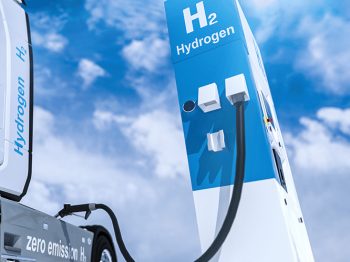Future government backing for hydrogen could make major difference to fleets
The upcoming election and potential new UK government provides a much-needed opportunity for a rethink on the future hydrogen strategy.

Fleetcheck has called on operators to help pressure any new administration to deliver a more effective hydrogen van strategy
Software specialist FleetCheck said there was huge potential for hydrogen in future fleet zero emissions strategies for light commercial vehicles.
And it’s called on fleets to help pressure any new administration to deliver a more effective hydrogen van strategy.
Peter Golding, FleetCheck managing director, said: “This is not a political comment but we will get a new government this year or early in 2025, and the polls show that it is very unlikely to be the same as the current administration. That moment will provide an opportunity for change.
“The truth is that one of the victories that this government can claim over the last few years is the rate of electrification by car fleets. Their taxation strategy and other measures means that the average company car is now very likely to be an EV.
“However, it has been a zero emissions ‘all-eggs-in-one-basket approach’ concentrating on EVs and, while there is some support for hydrogen in their planning, it is pretty limited, and there is almost nothing that looks at the potential for van fleets.”
This includes the current “almost non-existent” hydrogen refuelling infrastructure.
“There are plans to build 40 or so stations in support of truck and bus operators but the whole approach is very much based on larger commercial vehicles and buses.
“This is an issue because many van fleets are discovering very real limits to electrification when it comes to range and payload, and hydrogen is a potential zero emissions alternative with real promise.”
Golding added that the issue was being highlighted by the arrival in the UK of the Vauxhall Vivaro-e Hydrogen van, which promises pump-style fuelling, a range of around 250 miles, and could be potentially purchased at prices competitive to electric vans.
“This appears to be a practical zero emissions solution for van fleets but it is very much a vehicle in search of an infrastructure. Unless you are willing and capable of putting your own hydrogen depot refuelling in place, it’s very difficult impossible to adopt.
“Any future government should be pressured by fleets to provide infrastructure for these vehicles, while ensuring that the price of hydrogen is competitive with other fuel sources.
“In truth, the refuelling network doesn’t need to be huge in the first instance, but it needs to be reliable and in the right places, such as motorway services. A scheme to put, say, 200 hydrogen stations in place across the UK in the next couple of years would make an enormous difference to the viability of vehicles such as the Vivaro and others that could follow. For fleets that are struggling with electric van adoption, a future government that is willing to back hydrogen could make a massive difference.”
Even without a change of administration, FleetCheck said a general election was a moment for a strategic rethink.
“Our industry should then try to work again in this area with the current administration. Hydrogen simply looks as though it will solve a number of problems for fleets in cases where there are no easy answers for electric power.”
The Association of Fleet Professionals (AFP) has also said this week that hydrogen’s potential as a fleet fuel will likely be on the minds of operators looking for zero emissions solutions in 2024.
While chair Paul Hollick also spotlighted the overwhelming lack of hydrogen refuelling infrastructure, he said AFP members were keen to try the hydrogen Vivaro in operational roles where battery electric vans are considered impractical, “creating a multi-fuel zero emissions strategy”.
The AFP has also spotlighted areas where action is needed to drive battery electric van rollout, warning that adoption is proving to be an “incremental process” as fleets work to overcome tricky practical and strategic issues.
The trade body said key areas such as payload, range and charging remain major obstacles to battery electric van rollout – and has called for work to resolve the 4.25-tonne electric van derogation, while also saying that rapid proliferation of on-street chargers and better access to forecourt charging facilities are “sorely needed”.












